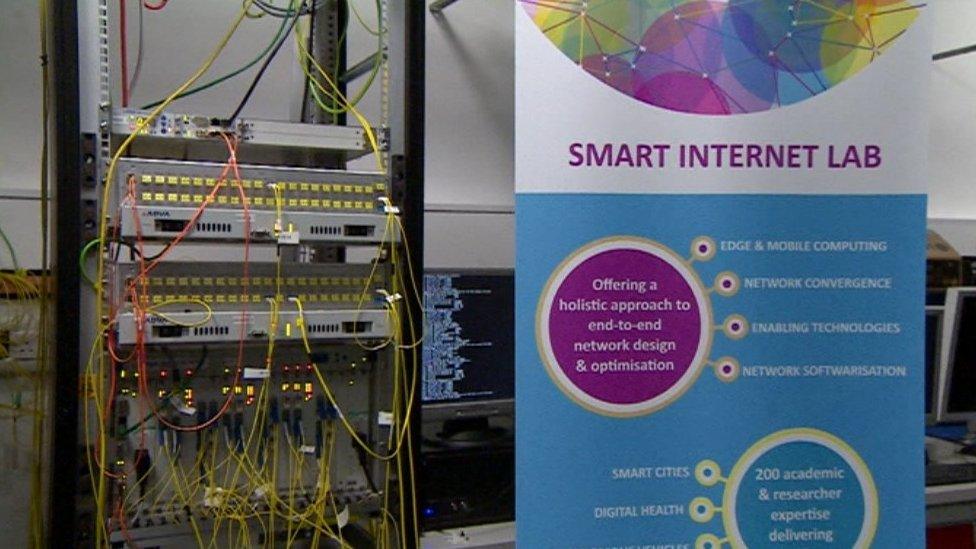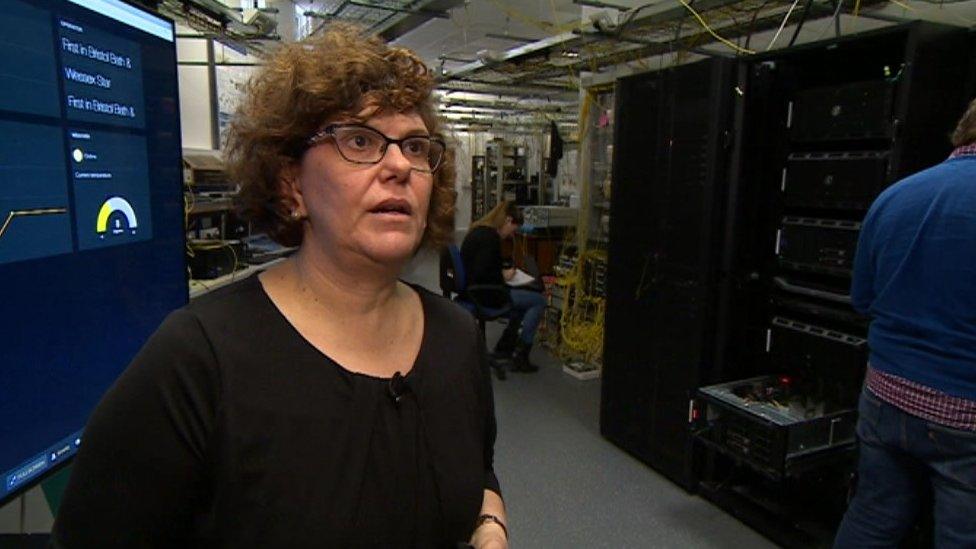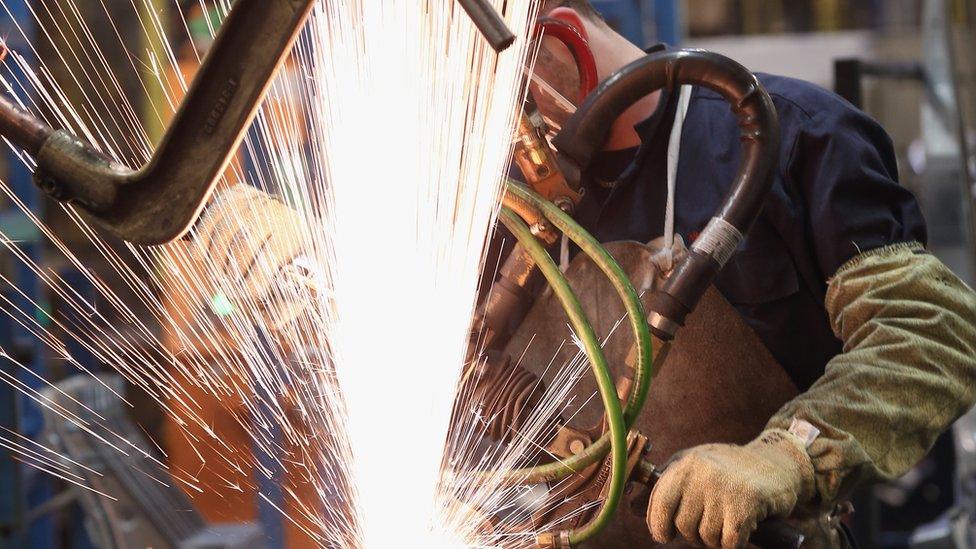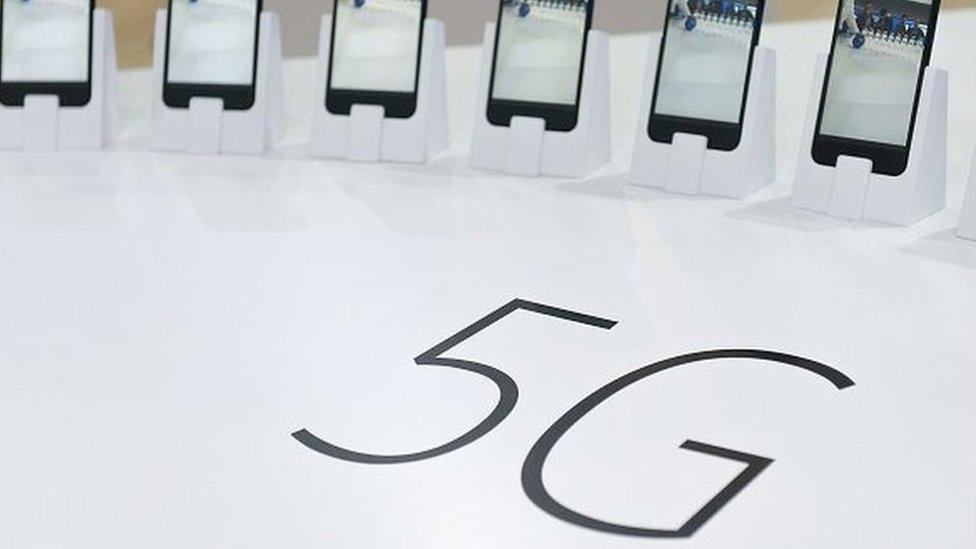Bristol joins race to be test bed for ultra-fast 5G technology
- Published

Britain is in 54th place in the global league of 4G connectivity
British inventors may have pioneered the telephone and the internet but the reliability of those networks in this country is lagging behind.
A recent Ofcom report suggested 20% of homes in urban areas struggle with poor 4G phone signal.
In rural areas, it's as high as 80%. Little wonder then Britain languishes at 54th place in the global league table of 4G connectivity, behind Albania, Estonia and Peru.
WATCH: What is 5G?
The hunt is now on for test beds to develop new 5G technology - Bristol, Kings College London and the University of Surrey are all said to be interested.
The government has announced a fresh drive to bring us up to speed for the digital age. It has put superfast connections at the heart of its Industrial Strategy, backed up with investment of £1bn.
Inside the Smart Internet Lab at the University of Bristol - I discover just how much progress they've already made.
They've designed a small box that emits 5G. The promise is super-fast, super-reliable connectivity wherever you go.
It's an essential component in the driverless car technology they're also working on here. When you're travelling at 60mph in a car reliant on mobile signals for direction, you can't afford to slip into a digital desert.

Bristol is keen to be one of the test beds to develop 5G technology
Lab director, Professor Dimitra Simeonidou, said: "5G is a revolution. It's not just about having a faster connection in our mobile phones - it's also about creating a seamless connectivity with the network and it's about having complete reliability."
"Often in your home you have great connectivity. Your teenagers might be on YouTube while you're watching programmes streamed on iPlayer. Then you get into your car and you don't even get a 3G service. 5G will stop all of this."

Professor Dimitra Simeonidou said 5G is a "revolution"
As our data demands climb exponentially we need a network that can support them. Now the race is on to design the framework for that digital dream.
- Published23 January 2017

- Published18 November 2016

- Published11 July 2016

- Published11 May 2016